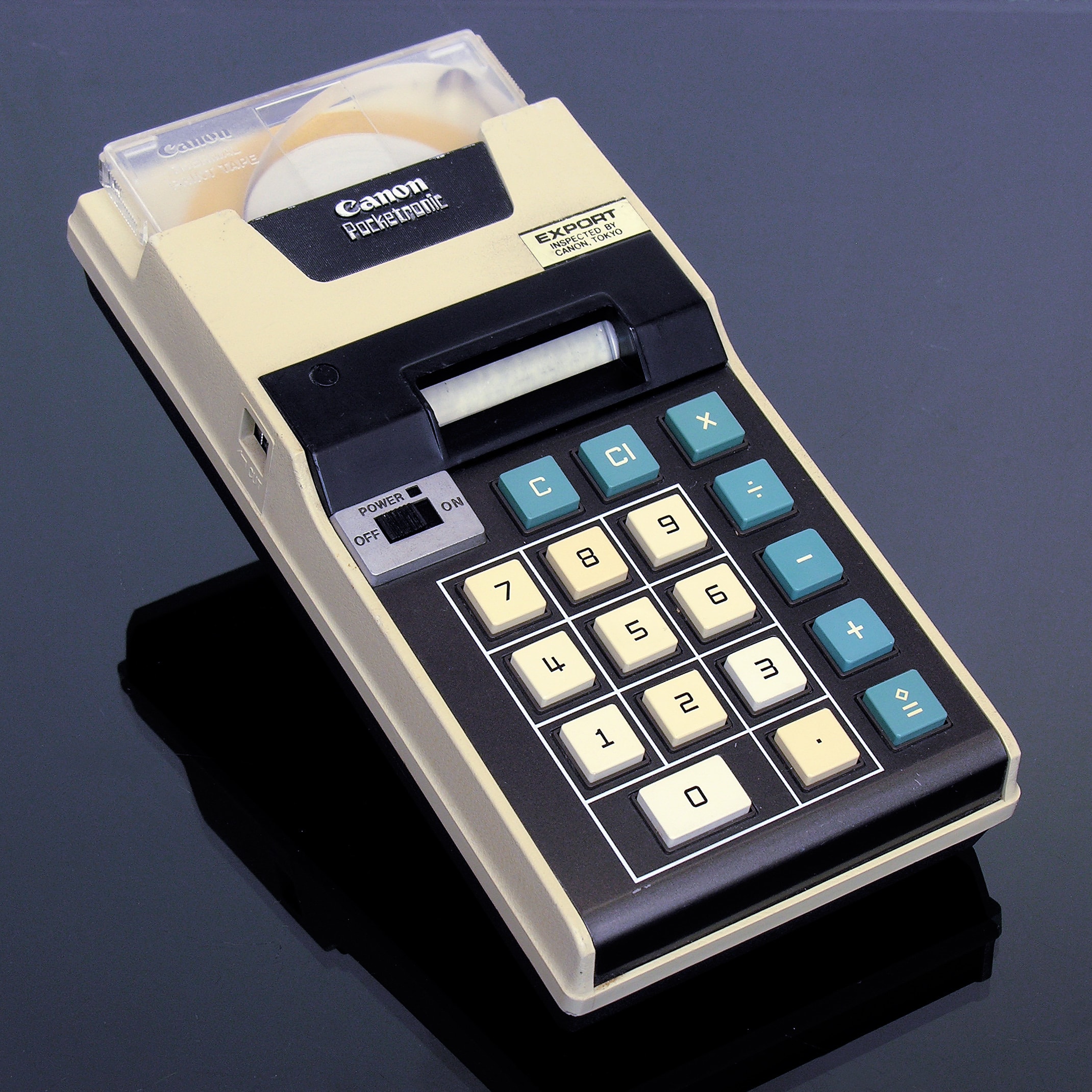It’s out! Empire of the Sum was published yesterday in the US, and to mark the occasion I’m posting about a few of my favourite calculators. Today we’re taking a look at the Canon Pocketronic, a machine with a decent claim to being the first ever pocket electronic calculator.

The Pocketronic was both an imposter and a failure. It started life as the “Cal Tech”, a prototype calculator designed by Texas Instruments as a means to sell microchips to the average person on the street. The problem was that TI was not, at first, very good at making those chips. Despite having pioneered the integrated circuit, the Cal Tech’s chips were so complex that the company could not reliably produce them en masse. Another problem was that the usual calculator display mechanisms were inimical to the Cal Tech’s hoped-for pocketable form factor: LEDs were too power hungry, and so-called Nixie tubes — lightbulbs, essentially, with filaments twisted into the shape of numerals — were too large. In their place, TI put a reliable but obsolescent printing mechanism. This was a calculator that could run out of batteries and paper.
TI had never meant to build the Cal Tech itself, and so, years later, when it had solved its production issues, it handed the design to Canon for refinement into a more consumer-friendly device. The Pocketronic was born, considerably later than intended and so bulky that the “pocket” part of its name was as much an aspiration as a statement of fact. It was never the success that TI had hoped, and yet it gave the company a taste of a calculator market that only promised to grow and grow.
By and by, TI worked the kinks out of its manufacturing processes and, eventually, started to make calculators in house. A decade or so later and it was one of the largest calculator manufacturers in the world. And as any US schoolchild will tell you, it still is today.
If you’d like to order a copy of Empire of the Sum, this post will point you in the right direction. And if you’d like to hear more about the history of the pocket calculator first, have a listen to my chat with Dallas Campbell on the history of digital calculators.